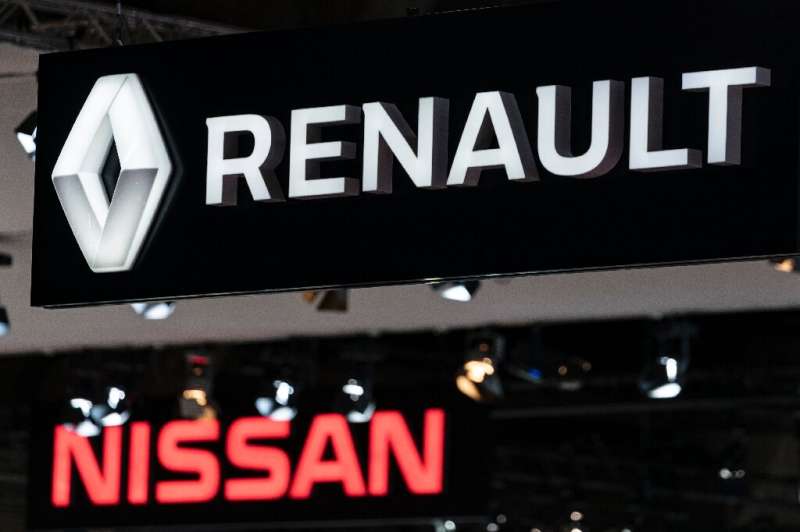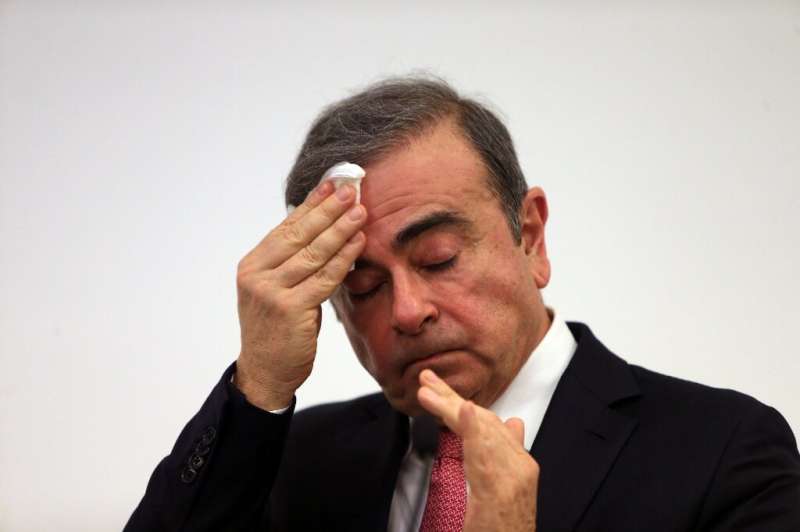Renault could see its long-term debt ratings cut
French automaker Renault could see its main long-term credit rating cut to below investment grade by Standard and Poor's, the agency said Wednesday, just days after Moody's lowered its own rating to "junk" status.
The moves come as Renault is struggling to re-find its footing in the wake of Carlos Ghosn's departure as chief executive last year, following his shock arrest in Tokyo in November 2018.
Both agencies cited the sharp deterioration in the amount of cash Renault can generate to support operations—its so-called free cash flow generation—at a time when sales are declining in its core European market.
This has caused its full-year operating margin—a key yardstick of profitability—to narrow to just 1.7 percent last year from 3.3 percent in 2018.
A company's credit rating is an assessment of its creditworthiness and "junk" status means the borrower is more likely to default on their loans.
In addition to the managerial turmoil, Renault needs to spend heavily on electric vehicle technologies as the EU starts imposing stricter limits on CO2 emissions by passenger cars this year.
Automakers who fail to decrease average emissions levels across their fleets will face fines that could amount to millions of euros.
In a fiercely competitive market, "we anticipate that volume producers such as Renault will find it hard to pass on incremental electrification costs to consumers," S&P said.
Renault has also been battered by lower earnings at its Japanese partner Nissan, in which it owns a 43-percent stake.
Former CEO Carlos Ghosn is taking Renault to court to claim millions of euros in unpaid pension and retirement pay
"Historically, Nissan's earnings contribution accounted for more than half of Renault's EBITA" operating profit, Moody's said.
"We do not expect that Renault will be able to restore healthy operating margin levels in the medium term," it added.
Moody's dropped its long-term rating by one notch, to Ba1, while S&P said it might also lower its BBB- rating to below investment grade.
Court fight
Both Renault and Nissan were thrown into flux with Ghosn's arrest on charges he under-reported his salary as Nissan chairman and other financial misconduct.
In December, he managed to escape from police surveillance in Japan and flee to Beirut, where he vowed to take Renault to court to claim millions of euros in unpaid pension and retirement pay.
On Friday, Ghosn's lawyers will argue in a French court that Renault owes him a 250,000-euro ($270,000) retirement payout.
He also plans to file later a lawsuit seeking his contractual supplementary pension of 774,774 euros ($862,000) per year, as well as 380,000 shares granted for reaching performance targets.
The automaker has refused to pay, saying Ghosn's alleged misconduct forced him to quit, making him ineligible for any retirement payouts.
Last month, the carmaker said former Volkswagen director Luca de Meo, credited with turning around the Spanish brand Seat, would take over as chief executive from July 1.
© 2020 AFP

























